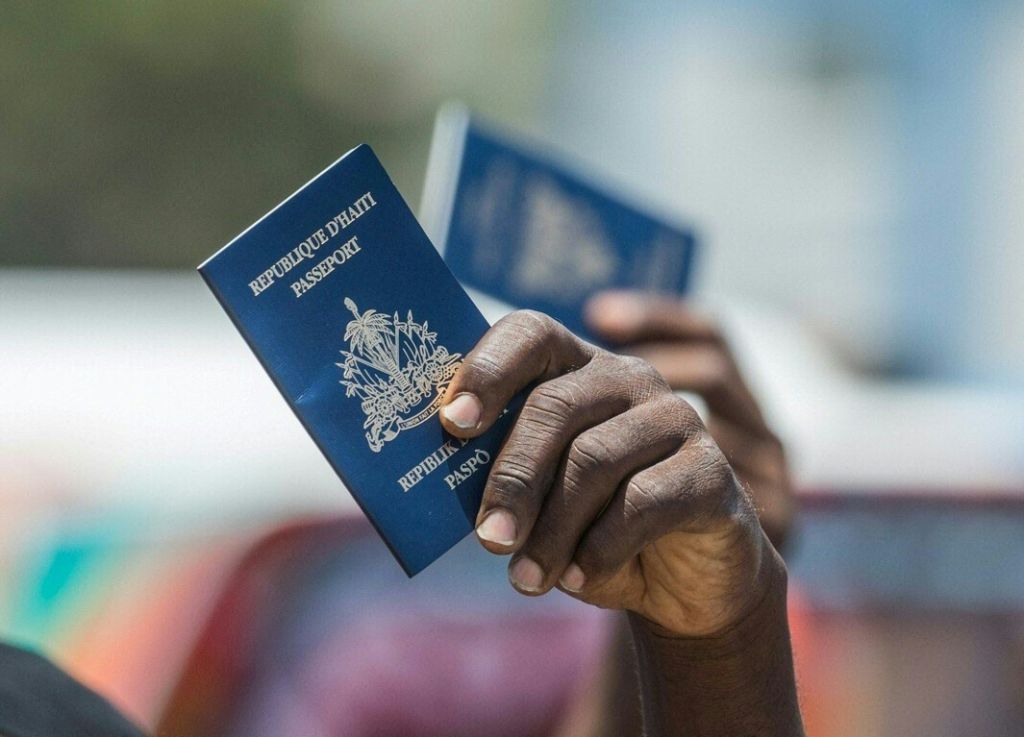
Source: VALERIE BAERISWYL / Getty
window.addEventListener(“load”, function() {
var pInstance = “anvato_4599054_4139312894”;
AnvatoPlayer(pInstance).init({“accessKey”:”BaDWlAqpo5M8Yua8MwF20ug3OPOQKkMV”,”video”:4599054,”token”:”0oVFDJikCnUND06eiLn7-oTIV9TEFGKeKMl9V-kCDqk~Mn4wfg”,”mcp”:”ANV”,”is_mobile”:”[[IS_MOBILE]]”,”pInstance”:”anvato_4599054_4139312894″,”width”:”100%”,”autoplay”:true,”playerTitle”:”NewsOne Player”,”playerId”:”4599054″,”analyticsId”:”newsone-bbe53″,”trackTimePeriod”:”1″,”plugins”:[]});
});
The U.S. government had a stern warning in no uncertain terms for any Haitians considering trying to flee and seek asylum in the U.S. following the assassination of the island nation’s president: Don’t do it.
It was the latest episode in the ongoing immigration crisis facing the U.S. But critics might not take too kindly to the broader sentiment to Haitians from Homeland Security Secretary Alejandro Mayorkas, who on Tuesday discussed the consequences for those who try to make the journey to the U.S.
Mayorkas stated that Haitians trying to travel to the U.S. “will die” and discouraged any “migration by sea,” the Washington Post reported. He later added: “Allow me to be clear, if you take to the sea, you will not come to the United States.”
Mayorkas’ words were also directed at people in Cuba, where ongoing protests against the government there have turned deadly.
Mayorkas said that anyone from Cuba or Haiti trying to seek asylum because of the political unrest in each country will be sent directly back to their native land or redirected to another country where they can settle.
While the U.S. is confronting an immigration crisis at the nation’s southern border, Mayorkas was likely referencing Florida as the familiar gateway for migrants from Cuba and Haiti. Just this past weekend, the U.S. Coast Guard was forced to suspend a search for nine missing Cubans off the coast of Key West after they attempted to flee their home and were likely headed to Florida, according to a press release.
But the implications behind Mayorkas’ words go well beyond just the Sunshine State.
Houston Public Media reported last month that thousands of Haitians who previously fled their homes to start new lives in Central and South America have now begun trying to migrate to the U.S. southern border because of racism and poverty they experienced after leaving Haiti.
Their fate was unclear as the U.S. has already extended protections for the Haitian nationals living in the continental 50 states under Temporary Protected Status (TPS). That status was renewed in May for another 18 months for up to 55,000 Haitians. Haitians living in the U.S. under TPS were previously facing deportations until Mayorkas renewed their protections.
Haitian President Jovenel Moïse‘s assassination last week induced feelings of uncertainty, anguish and fear among natives after enduring political and environmental turmoil, especially over the last 11 years. The loss of the nation’s leader invites valid questions regarding the country’s future amid fears of rising gang and police violence as well as political instability.
Perhaps complicating matters is the fact that a growing number of Americans have been linked to Moise’s assassination, including a prime suspect who is Haitian-American and once worked as an informant for the Drug Administration Administration.
Human rights and immigration advocates criticized Mayorkas’ comments to Haitians and Cubans.
In particular, Katharina Obser, the acting director of the Migrant Rights & Justice Program at the Women’s Refugee Commission, noted what she called Mayorkas’ “repeated insistence on rejecting desperate families, children, and single adults from our borders, whether by foot or by sea.”
Haitian Times Publisher Vania Andre also sounded the alarm about the future of Haitian nationals in an email she sent to NewsOne last week.
“For a while, Haitians in the Diaspora were hopeful about Haiti’s future, especially given the outpouring of support for the country in the wake of the 2010 earthquake. There was a sense that Haiti was going to build back bigger and better,” Andre said in part. “Folks left their corporate jobs and stability in the U.S. to be a part of that reawakening for Haiti, and sadly the reality has been the complete opposite, and Moise’s assassination is the final nail in the coffin for them.”
SEE ALSO:
What’s Next For Haiti After The Assassination Of President Jovenel Moïse?
The Plight Of Black Immigrants In America
[ione_media_gallery id=”3848058″ overlay=”true”]
